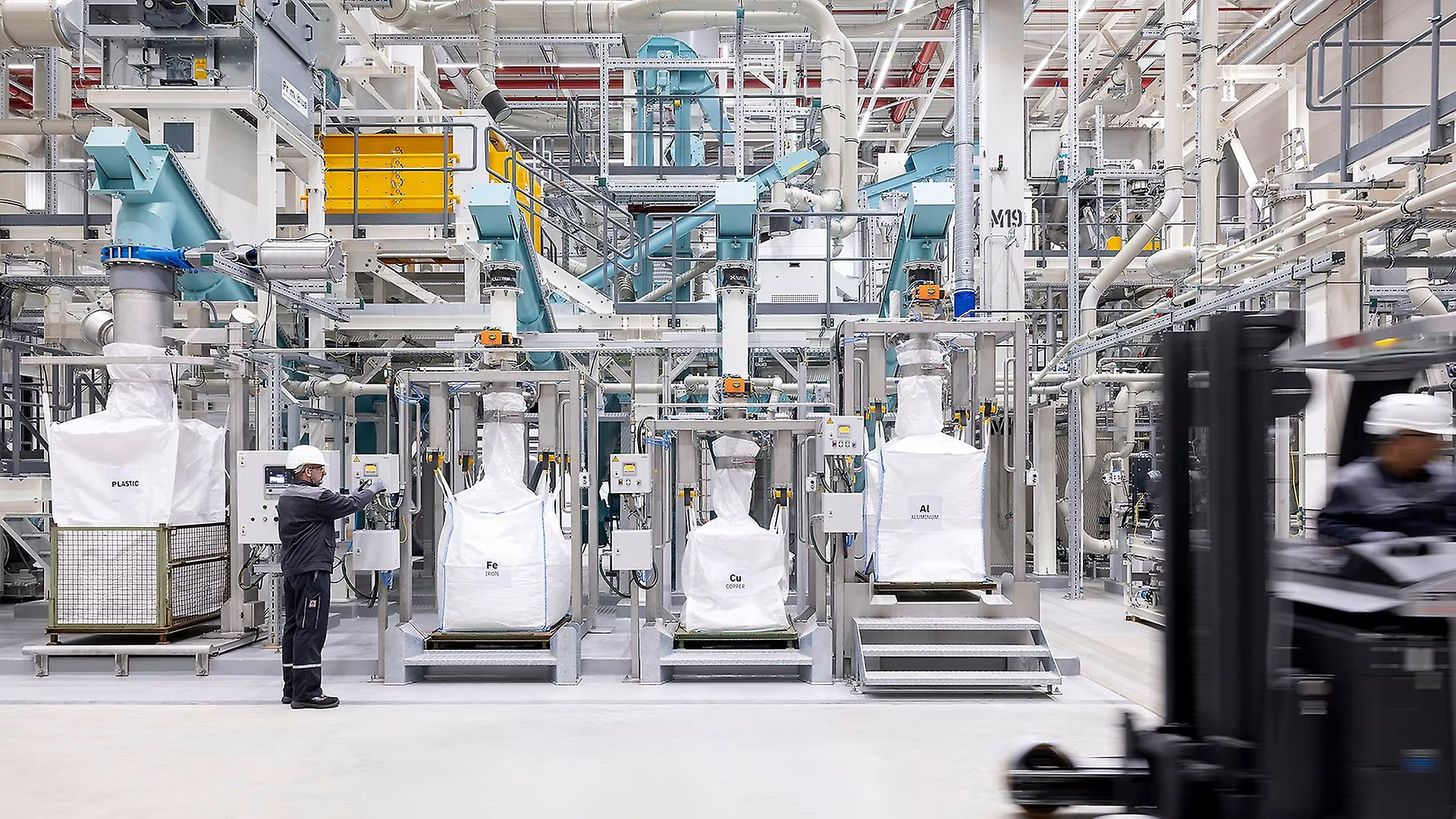
Mercedes-Benz has opened the first battery plant in Europe featuring an integrated mechanical-hydrometallurgical process.
The new plant opens in Küppenheim, southern Germany. The plant can reclaim more than 96% of vital raw materials used in electric vehicle (EV) production. A rooftop solar array equips the plant, which allows it to recover 2,500 tonnes of materials annually. In all, the facility operates on a net carbon-neutral basis.
As Mercedes-Benz puts it, the process involves shredding battery modules, and then stripping them into materials like copper, aluminum, and plastics. It chemically extracts rare-earth metals from the ‘black mass’ of electrode chemicals. For context, black mass is a mix of metals and other compounds generated when lithium-ion batteries are recycled.
Put simply, this technology allows the plant to recover materials with a high degree of purity.
Enough power to generate 5,000 EV batteries every year
When fully operational, the plant will generate 2,500 metric tons of recycled material annually, enough for 50,000 battery modules or 5,000 EV batteries.
The project, which has been backed by German Federal Ministry for Economic Affairs and Climate Action, highlights Germany’s goal towards sustainable manufacturing of automotive vehicles.
Mercedes-Benz has a goal focusing on circularity, material loop closure, value retention, and circular design.
Innovative strength for sustainable electric mobility
The facility, which is in partnership with Primobius, is a step to delivering on its goal.
“As a pioneer in automotive engineering, Europe’s first integrated mechanical-hydrometallurgical battery recycling factory marks a key milestone towards enhancing raw-materials sustainability. Together with our partners from industry and science, we are sending a strong signal of innovative strength for sustainable electric mobility and value creation in Germany and Europe,” said Ola Källenius, chairman of the board of management of Mercedes-Benz Group AG.
“The future of the automobile is electric, and batteries are an essential component of this. To produce batteries in a resource-conserving and sustainable way, recycling is also key. The circular economy is a growth engine and, at the same time, an essential building block for achieving our climate targets! I congratulate Mercedes-Benz for its courage and foresight shown by this investment in Kuppenheim. Germany remains a cutting-edge market for new and innovative technologies”, said Olaf Scholz, Federal Chancellor of the Federal Republic of Germany.
Opinion – More than just a step toward circularity
The move by Mercedes-Benz is more than just a step toward circularity. It shows that the industry is capable of taking responsibility for the lifecycle of its products. By recovering 96% of raw materials, Mercedes-Benz is demonstrating what efficient sustainability truly entails. However, should other automakers follow suit? It depends on the scale at which these plans are implemented; it shouldn’t just be a marketing move, but rather a genuine commitment to combating climate change.
